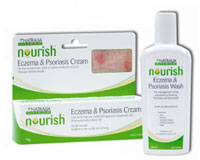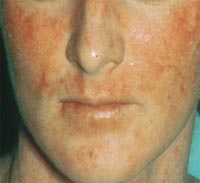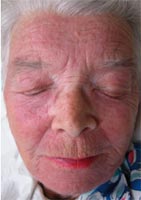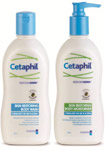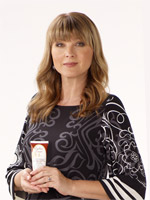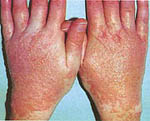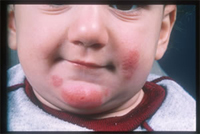Cheryl Talent Eczema Awareness Month Interview
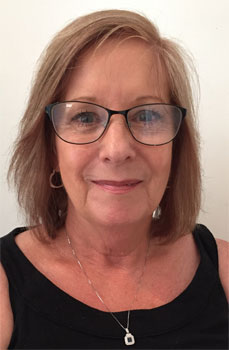
Cheryl Talent Eczema Awareness Month Interview
Australia's only organisation for eczema awareness, information and support, Eczema Association of Australasia Inc (EAA), will officially launch Eczema Awareness Month 2017 on 1 May with this years' campaign focusing on young Australians living with the condition.
ABS data shows more than 1.06 million Australians have eczema with young Australians making up 17.4 per cent of sufferers. However the EAA suspects this number to be much higher with many more young Australians hiding their condition because of the social stigma common with eczema.
EAA President, Cheryl Talent, firmly believes many young people living with eczema are under the assumption there is no hope for them to receive successful treatment and therefore mismanaging the condition leading to further complications with the condition.
Ms Talent said eczema at any stage of life is manageable as long as the condition is diagnosed correctly by a healthcare professional such as a GP or Dermatologist. 'There are a lot of stigmas associated with eczema and unfortunately due to the visible signs of the condition, this can combine to negatively impact already image conscious young Australians feeling embarrassed to ask for help or seek treatment," said Ms Talent.
'We are receiving an increasing amount of calls from concerned young people and their parents about living with eczema and what they can do to reduce the visible signs of the condition."
Most Australians associate eczema as being a red rash or sore that appears on the skin and is triggered by seasonal changes or contact with certain chemicals or plant life.
There is a significant amount of help and resources available and this condition can be readily treated. Despite there being no cure, people can learn to live with it and manage eczema effectively so it doesn't continue having a negative impact on your life.
Ms Talent said people assume eczema sufferers are either the young or the elderly, but this is a common misconception with the condition active across all age groups.
'Sadly eczema does not discriminate, depending on the conditions of the person and their environment, eczema can affect almost anyone at any age," said Ms Talent.
'We strongly advise any young Australians who think they have a form of eczema to contact their GP or seek a referral to a Dermatologist to correctly diagnose it and most importantly create a management plan for the condition."
For anyone with concerns they or someone close to them has eczema symptoms call 1300 300 182.
For more information about the Eczema Association of Australasia visit – www.eczema.org.au
Interview with Cheryl Talent, President of the Eczema Association of Australasia
Question: What is Eczema Awareness Month?
Cheryl Talent: Australia has one of the highest incidences of Eczema in the world. Eczema Awareness Month seeks to increase public awareness of Eczema, and also to educate people living with or caring for someone with eczema.
Question: What do you hope to achieve with Eczema Awareness Month?
Cheryl Talent: This year, Eczema Awareness Month places the spotlight on teenagers. Many young people living with eczema are under the assumption that there is no hope for their condition. Although at this point there is no cure,we know that with a correct diagnosis from a healthcare professional their condition can be managed very well.
Question: What are the symptoms associated with Eczema?
Cheryl Talent: People with eczema usually have rashy, dry, red, patchy or cracked skin which can appear anywhere on the body accompanied by moderate to severe itchiness.
Question: Is there a specific cause for an individual's Eczema?
Cheryl Talent: Most commonly eczema sufferers have a family history of atopic disorder which includes asthma and hay fever, however eczema can also be caused through contact with something you have an allergic reaction with.
Question: Can you talk us through the degrees of treatment for young Australian with Eczema?
Cheryl Talent: It is very important to visit your GP and it may be necessary to also consult a Dermatologist. Using skin products which are specifically designed for sensitive skin including frequent moisturising, reviewing diet and lifestyle choices. It may be necessary to use a topical corticosteroid treatment.
Question: Why do you believe many young Australians hide their Eczema symptoms?
Cheryl Talent: Teenagers with eczema are very self-consciousness about their skin condition which impacts negatively on their self-esteem at a very difficult time when social acceptance by their peers is of utmost importance.
Question: How do you hope to demolish the social stigma associated with Eczema?
Cheryl Talent: We know there is good management for eczema if the correct information is provided – only by providing awareness of the condition can we hope to overcome the social stigma.
Question: How can all Australians be eczema aware?
Cheryl Talent: Help us spread the word – the more people know about eczema, the sooner we'll find a cure.
Question: Where can Australians go for more advice on Eczema and Eczema Awareness Month?
Interview by Brooke Hunter
Have You Seen This?
MORE
- Is Your Dad at Risk of Type 2 Diabetes?
- Australian-First Trial Examining Physical and...
- Dr Suzan Bekir Rosacea Treatment Interview
- Rebecca Hepatitis C Interview
- Cheryl Talent Eczema Awareness Month Interview
- Dee Honeychurch Paediatric Stroke Awareness...
- Have You Planned Your Heart Attack
- Sally Carkeet Living with Rheumatoid Arthritis...
- Managing Eczema Flare-Ups This Spring
- Rheumatoid Arthritis

